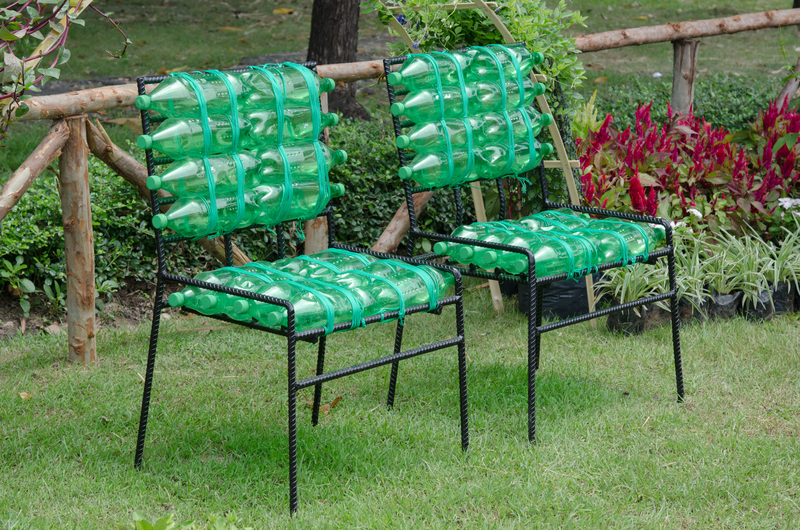Innovative Strategies for Teaching Kids About Recycling
Recycling is a crucial part of building a sustainable planet, and its importance grows with every generation. Teaching children about recycling not only fosters eco-friendly habits but also empowers them to become responsible stewards of the Earth. In this comprehensive guide, we'll explore innovative strategies for teaching kids about recycling. With practical tips, creative activities, and proven methods, you'll find plenty of inspiration to help kids embrace the transformative power of recycling.

Why Recycling Education for Children Matters
Children are the future custodians of our environment. By making recycling education engaging and accessible, we lay the foundation for a greener tomorrow. Kids absorb habits quickly, and when they understand why recycling is vital, they are more likely to apply it at home, school, and community.
Some key benefits of early recycling education include:
- Environmental Awareness: Kids develop a personal connection to the environment.
- Responsibility: Teaching responsibility towards waste management from a young age.
- Lifelong Habits: Early lessons in recycling lead to sustainable lifelong behaviors.
- Influence: Children can influence adults and peers with their newfound knowledge.
Creative and Innovative Ways to Teach Kids About Recycling
1. Hands-On Sorting Games
One of the most effective and fun strategies for teaching recycling to kids is through sorting games. Use labeled bins for paper, plastic, glass, and metal, and provide a variety of clean, empty items. Encourage children to sort items into their respective bins.
- Color-Coded Bins: Use bright colors to help children quickly identify where to put each item.
- Relay Races: Add a time challenge and split kids into teams for an exciting recycling relay race.
- Memory Matching: Create cards with different recyclable materials and matching bins; kids can play memory games to find the correct pairs.
These approaches make the concept of recycling for kids both tangible and memorable.
2. Storytelling and Educational Videos
Children love stories! Leverage recycling-themed storybooks or animated videos to capture their imagination. Choose stories that feature relatable characters solving environmental problems through recycling.
- Tailored Content: Select stories appropriate for the child's age and comprehension level.
- Classroom Discussions: Follow up with guided conversations to reinforce lessons learned from the story.
- Creative Writing: Encourage children to write their own recycling adventures or draw comics with eco-heroes.
3. Recycling Art Projects
Transform learning about recycling for kids into a creative endeavor by using recyclable materials in art projects. This hands-on approach not only teaches environmental responsibility but stimulates imagination.
- Junk Sculpture: Build robots, animals, or vehicles from cardboard, bottles, and cans.
- Mosaic Creations: Use colored paper scraps or plastic bottle caps to make stunning mosaics.
- Fashion Shows: Organize "Trashion" shows where kids design costumes from upcycled items.
These projects reinforce the idea that recycling can be both beneficial and fun.
4. Interactive Recycling Apps and Digital Games
In our digital era, interactive learning tools can greatly enhance engagement. There are numerous child-friendly apps and games focusing on recycling concepts.
- Sorting Simulations: Digital games let kids practice sorting different materials virtually.
- Eco-Quizzes: Test knowledge with quizzes that offer rewards or badges for correct answers.
- Virtual Enviro-Adventures: Games that take players on missions to "clean up" virtual worlds by recycling properly.
These innovative strategies for recycling education make learning accessible anytime, anywhere.
5. School Recycling Programs and Challenges
Bringing recycling into the school environment increases its daily relevance. Many schools implement recycling programs where students separate their lunchtime trash, monitor waste, or even manage composting bins.
- Classroom Competitions: Challenge classes to recycle the most and celebrate with eco-friendly rewards.
- Recycling Monitors: Assign rotating "recycling captains" who oversee proper sorting.
- Eco-Week Events: Host themed weeks to shine a spotlight on green habits, with guest speakers and recycling demonstrations.
Such programs foster teamwork and a communal sense of responsibility for the environment.
6. Waste Audits and Explorations
Conducting a waste audit is a powerful, hands-on strategy for teaching kids recycling. Gather a day's worth of classroom or household waste (safely and hygienically) to analyze what types of materials are being disposed of.
- Sorting Sessions: Students categorize the waste and weigh each group, discussing which materials could have been recycled or reused.
- Data Tracking: Create charts showing weekly or monthly reduction in waste sent to landfills as kids improve recycling efforts.
- Action Planning: Work together to set targets for better recycling and reducing single-use items.
7. Recycling Field Trips
Field trips provide real-world insight into the journey of recyclables. Touring a recycling facility or landfill helps children see firsthand the scale of waste and the positive impact recycling can make.
- Behind-the-Scenes Tours: Observe how materials are sorted, processed, and given new life.
- Guest Speakers: Invite industry professionals to share their experiences and answer questions.
- Nature Walks: Combine environmental education with outdoor fun by picking up litter in parks, discussing which items can be recycled.
8. Composting in the Classroom or at Home
Composting is an important component of waste reduction. Set up a small compost bin for food scraps and yard waste. Kids can monitor the process, learn about decomposers, and eventually use the compost in gardens.
- Observation Journals: Have children record changes in the compost, drawing and labeling what they find.
- Science Integration: Connect composting to biology lessons on ecosystems and nutrient cycles.
- Planting Projects: Use finished compost to grow class plants, closing the recycling loop.
Incorporating Recycling Education In Everyday Life
Lead by Example
The most effective way children learn is by observing adults. Make recycling a visible and normal part of daily routines, both at home and in school.
Tips for integrating recycling into everyday life:
- Keep clearly labeled recycling bins in accessible areas.
- Talk positively about recycling and discuss the benefits regularly.
- Let children see you making sustainable choices, like using reusable bags and purchasing recycled products.
- Encourage curiosity by answering questions and exploring recycling topics together.
Involvement in Community Recycling Initiatives
Getting kids involved in community recycling efforts gives them a sense of broader purpose. Participate in local clean-up drives, recycling contests, or upcycling workshops.
- Recycling Drop-Off Days: Work together to collect and deliver recyclables not accepted curbside (like batteries, electronics).
- Neighborhood Projects: Organize a street-wide recycling effort, inviting families to join in and learn together.
- Local Art Installations: Contribute recycled materials to community art projects or public murals.
Overcoming Common Recycling Education Challenges
Despite our best efforts, teaching children about recycling can present certain hurdles. Understanding and addressing these challenges is vital for success.
- Complex Recycling Rules: Recycling guidelines vary by locality, often causing confusion about what can and can't be recycled.
Solution: Print clear visuals, offer simple rules, and update materials whenever guidelines change. - Lack of Motivation: Some children may not see the impact of recycling.
Solution: Set up charts to track collective impact--number of items recycled, landfill space saved, or positive rewards for participation. Celebrate progress, no matter how small! - Limited Resources: Not every home or school has recycling bins or access to recycling services.
Solution: Focus on reducing, reusing, and creative repurposing, making the best use of available resources.
Measuring the Impact of Recycling Education
To ensure your innovative recycling teaching strategies are making a difference, it's essential to track progress. Here are ways to measure impact:
- Pre- and Post-Assessments: Use quizzes or discussions to gauge kids' knowledge before and after recycling education units.
- Tracking Waste Reduction: Monitor how much waste is recycled or composted over time.
- Student Reflections: Encourage children to share what they've learned, what they found inspiring, or new habits they've formed.

Key Takeaways for Parents and Educators
- Model Behavior: Show enthusiasm and commitment to recycling.
- Encourage Questions: Nurture curiosity and address misconceptions.
- Make Learning Fun: Use games, stories, art, and technology to keep engagement high.
- Celebrate Achievements: Recognize individual and group successes with eco-friendly rewards.
With these innovative strategies for teaching kids about recycling, adults can spark a lifelong love for the environment in young learners. The skills and habits formed through recycling education will empower children to protect the planet and influence those around them. Let's nurture the next generation of environmental leaders--one recycled bottle, can, and paper at a time!
Resources to Enhance Recycling Education for Kids
- US Environmental Protection Agency (EPA) - Recycle
- National Geographic Kids - Recycling
- Reduce, Reuse, Recycle Activities for Kids
- Plastic Pollution Coalition: Resources for Kids and Parents
Start today, and make recycling a cornerstone of childhood education for a cleaner, brighter future!